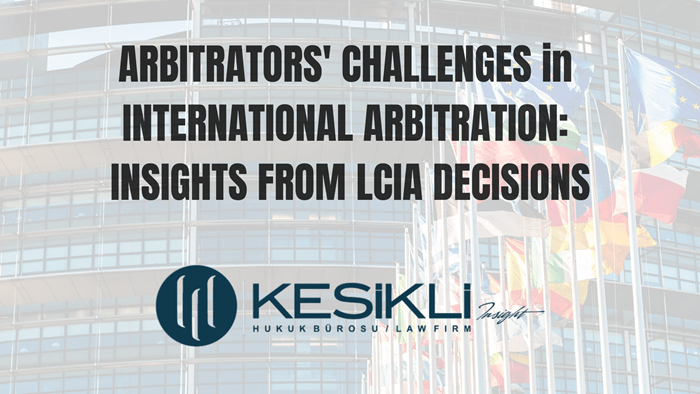In our previous article (Economic Weakness of a Party & Validity Concerns in International Commercial Arbitration) we, have discussed the possible legal implications of the economic weakness of a party in international arbitration proceedings that may lead to invalidation of an arbitration agreement and an adverse impact on the welfare of arbitral proceedings. The lack of a legal instrument protecting the parties to an arbitration agreement against the economic weakness allegations may also lead to a breach of the right to access justice.
Third-party funding (TPF), a relatively “new” concept in international commercial arbitration, emerged as a solution to the challenges arising out of the economic weakness of a party. While a party applies for TPF due to its financial incapability or weakness to file and proceed with an arbitral proceeding, there could be other special reasons a party may prefer using TPF, such as financing preferences or risk management policies.
While the definition of the TPF is unclear, TPF refers to “every possible contract where the pay-out under that contract is linked to litigation proceedings.” This includes insurance contracts, loans, attorney financing, etc. The funders could be entrepreneurs or financiers seeking profit or even a donator or a governmental organization.
In practice, third-party funders could also be considered as investors. Third-Party Funding Guidance Note of the Law Society of Singapore provides such a definition stating: ‘Third-party funding involves a commercial funder agreeing to pay some or all of the claimant's legal fees and expenses. Should the claimant succeed, the funder takes a share of any sum recovered from the claim’s resolution. The funder’s return is often calculated as a percentage share of the recovery or as a multiple of the amount the funder invests. The funder may also agree to bear any adverse costs liability and provide security for the respondent's costs. If the claim fails, the funder often receives nothing and remains liable for the claimant’s legal fees and any adverse costs it has agreed to bear.” In this case, the funder is not required to be a party to the arbitration proceedings but merely shows an intention to fund the costs of an arbitration specifically to get profit.
In summary, the funders generally act as investors relating to arbitration proceedings. Funders typically calculate their associated risks by engaging with professional service providers and obtaining sophisticated feasibility reports and legal opinions. Indeed, a careful assessment is necessary to comprehend the overall chances of collecting the receivables from the counterparties involved. Funders tend to invest in cases that have a high probability of winning. The funders generally assess the possible damages under six headings:
1. Merits of the claim
2. Claimant
3. Claimant’s legal representation
4. Litigation Budget
5. Expected Damages
6. Respondents and recovery
On the international level, due to the novelty of the concept, the legislation available is minimal, and there is no specific legislation specifically focusing on TPF. On the other hand, some guidelines, reports, and proposals touch upon a few sensitive aspects:
- IBA (International Bar Association) Guidelines on Conflicts of Interest in International Arbitration (2014) on the explanation to General Standard 6(b) explicitly mentions TPF and points out the transparency aspects and duty to disclose such agreements during the arbitration.
- Drawing from IBA Guidelines, ICC (International Chamber of Commerce) adopted ICC Commission Report - Decisions on Costs in International Arbitration (2015) and ICC Note to Parties and Arbitral Tribunals on the Conduct of the Arbitration (2019), both of which similarly aim to promote transparency.
- In the arena of international investment arbitration, there have been amendment proposals for ICSID (International Centre for Settlement of Investment Disputes) Rules, to include a definition for TPF and to regulate disclosure of TPF. These initiatives are also crucial for commercial arbitration proceedings because ICSID Rules would set a precedent.
Under Turkish law, TPF is neither regulated in the International Arbitration Act No. 4686 nor covered under any rules or guidelines. We consider the funding agreement in terms of Turkish Law as legal in parallel with the principle of freedom of contract, to the extent it does not violate mandatory provisions of Turkish Code of Obligations no. 6098. The TPF contract shall be conducted between the third-party funder and the party to the arbitration proceedings seeking financial support. In cases where a dispute arises, the applicable law of the contract shall be determined according to Article 24 of the Turkish Code on Private International and Procedural Law no. 5718 unless the parties already chose the governing law of the same appropriately.
While TPF has certain benefits, it also creates specific legal issues to be overcome. The main problems are the impartiality of the arbitrators, transparency, and confidentiality.
First, the TPF may potentially affect the objective assessment of the arbitrators since, generally, the cases with a “high probability of winning” are funded. If a funder backs a claim, besides the psychological effect on the arbitrators, the other parties would also be more inclined to accept mediation rather than pursue arbitration.
Transparency is also considered to be one of the biggest concerns. There are already regulations under discussion associated with IBA Guidelines, ICC Notes, and ICSID amendments, all focusing on this aspect. The obligation for the TPF to be disclosed and the content of disclosure are all commonly argued matters. Arguments are mainly based on the idea of preventing conflicts of interest.
Third, as is widely known and written, one of the primary sources of attraction in choosing commercial arbitration is privacy. However, in cases of TPF, the funder investigates every aspect of the case during the risk assessment phase. It is probably because revealing such sensitive information to the funder in its due diligence can cause a leak of confidential and sensitive information of the other parties involved. Thus, specific mechanisms and legal measures must be established to meet the other parties’ confidentiality concerns. Whether revealing private information to a potential funder can be prohibited in the arbitration agreement would also be an interesting question, which will undoubtedly lead us back to the debate challenging the validity of the arbitration agreement, asserting the breach of the right to access to justice and the principle of pacta sunt servanda.
@Ömer Kesikli
Let's Get Connected!



